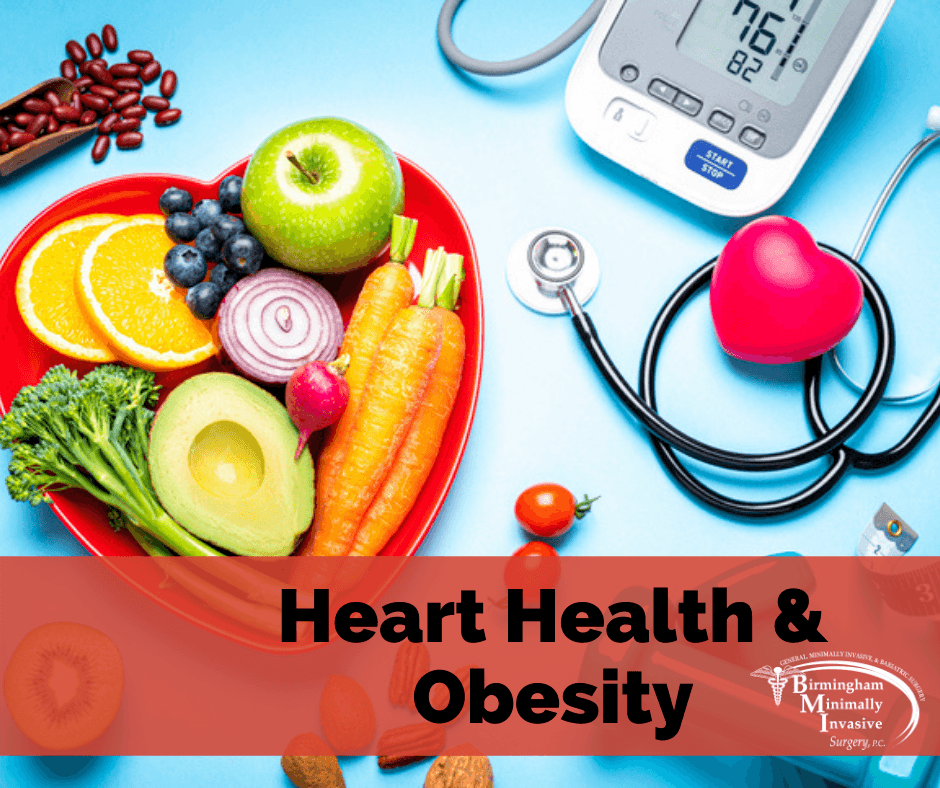
Heart health is always important, especially if you are obese since heart-related comorbidities are more likely to be present. So what exactly does “heart disease” mean? According to the CDC, this refers to several types of heart conditions, such as coronary artery disease (CAD), which affects the blood flow to the heart. Decreased blood flow can cause a heart attack. About 655,000 Americans die from heart disease each year.
However, there are many things you can do to improve your heart health! For those who are obese, this will probably start with losing weight.
Signs, Symptoms, & Risk Factors for Heart Disease
Sometimes heart disease may be “silent” and not diagnosed until you experience signs or symptoms of a heart attack, heart failure, or an arrhythmia. When these events happen, symptoms may include:
- Heart attack — Chest pain or discomfort; upper back or neck pain; indigestion; heartburn; nausea or vomiting; extreme fatigue; upper body discomfort; dizziness; and shortness of breath
- Arrhythmia — Fluttering feelings in the chest (palpitations)
- Heart failure — Shortness of breath; fatigue; or swelling of the feet, ankles, legs, abdomen, or neck veins
High blood pressure, high blood cholesterol, and smoking are major risk factors for heart disease. Several other conditions and lifestyle choices can also put you at a higher risk for heart disease, including:
- Diabetes
- Overweight or obese
- Unhealthy diet
- Physical inactivity
- Excessive alcohol use
If you’re obese, you should always be looking for signs of heart failure, including fatigue, shortness of breath, and an irregular heartbeat.
Losing Weight to Improve Heart Health
If you’re extremely obese, losing weight can mean “less heart disease, less diabetes, and less cancer,” according to the American Heart Association.
Losing weight can reduce your risk of heart disease and stroke; improve associated risk factors, and help improve cholesterol levels. Moderate weight loss of even 10% in those who are obese can improve heart health and other conditions. When it comes to your heart, the significant impact of weight loss on the cardiovascular system is decreased stress on the heart, which leads to improvements in its structure and function.
We know that taking action to lose weight and improve your health may seem overwhelming. You may have had trouble losing weight or maintaining weight loss in the past, but there are a few things you can do that are really pretty simple.
The main areas to focus on include:
Changing your diet.
It’s simple to say but not always simple to do. On a very basic level, to lose weight, you have to reduce the number of calories you consume. Tracking everything you eat is often helpful in the beginning and can be eye-opening. Reducing calories by 500 per day should help you lose about one pound a week.
Increasing physical activity.
For those who are extremely obese, a workout routine may not be possible yet. But by increasing daily movement, you will help your body burn more calories and prime it for more activity later. It works well for many to increase physical activity after experiencing about 10% weight loss.
Weight loss surgery.
Sometimes changing your diet and increasing physical activity isn’t enough, and this is where weight loss surgery comes in. The American Heart Association recommends surgery for those who are healthy enough for the procedure and have been unsuccessful with lifestyle changes and medication.
This is where Birmingham Minimally Invasive Surgery comes in to help you determine if weight loss surgery is right for you. Our three most popular options include gastric sleeve surgery, gastric bypass surgery, and the LAP-BAND. We have seen these surgeries change people’s lives over and over again by improving not only heart health and other conditions but by giving them their quality of life back.
If you’ve been on the fence about scheduling an appointment to talk with us, make it your mission to come to see us soon!

